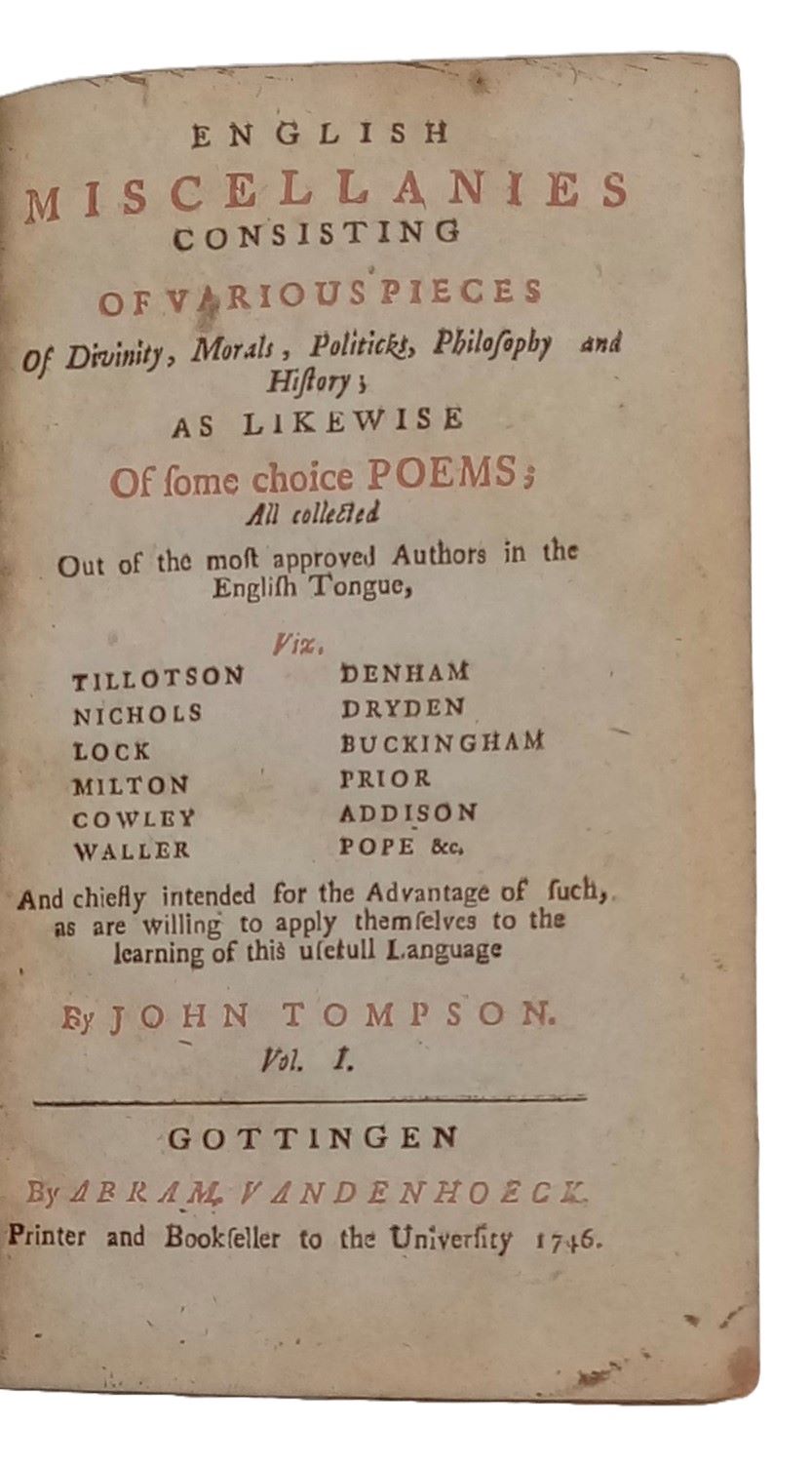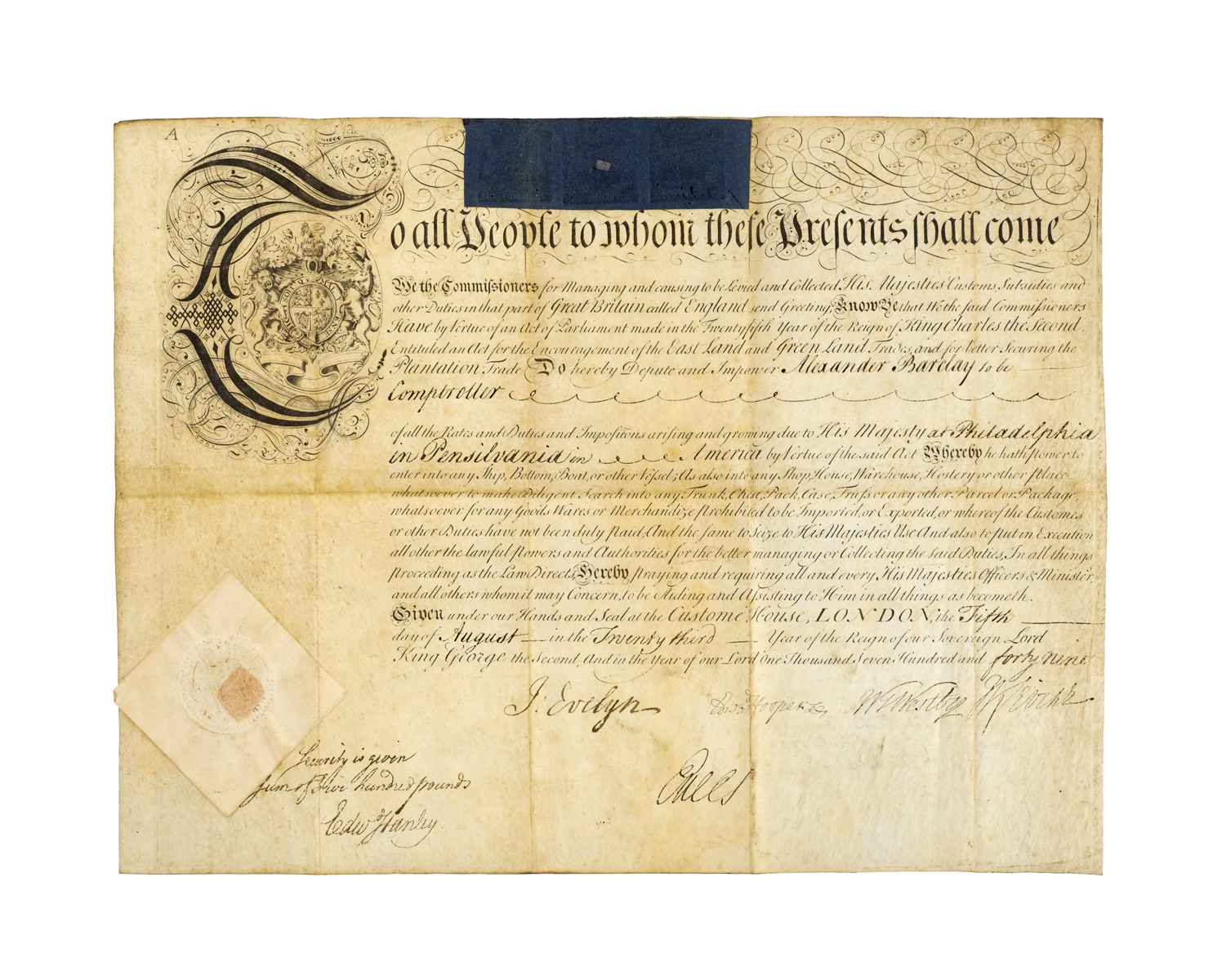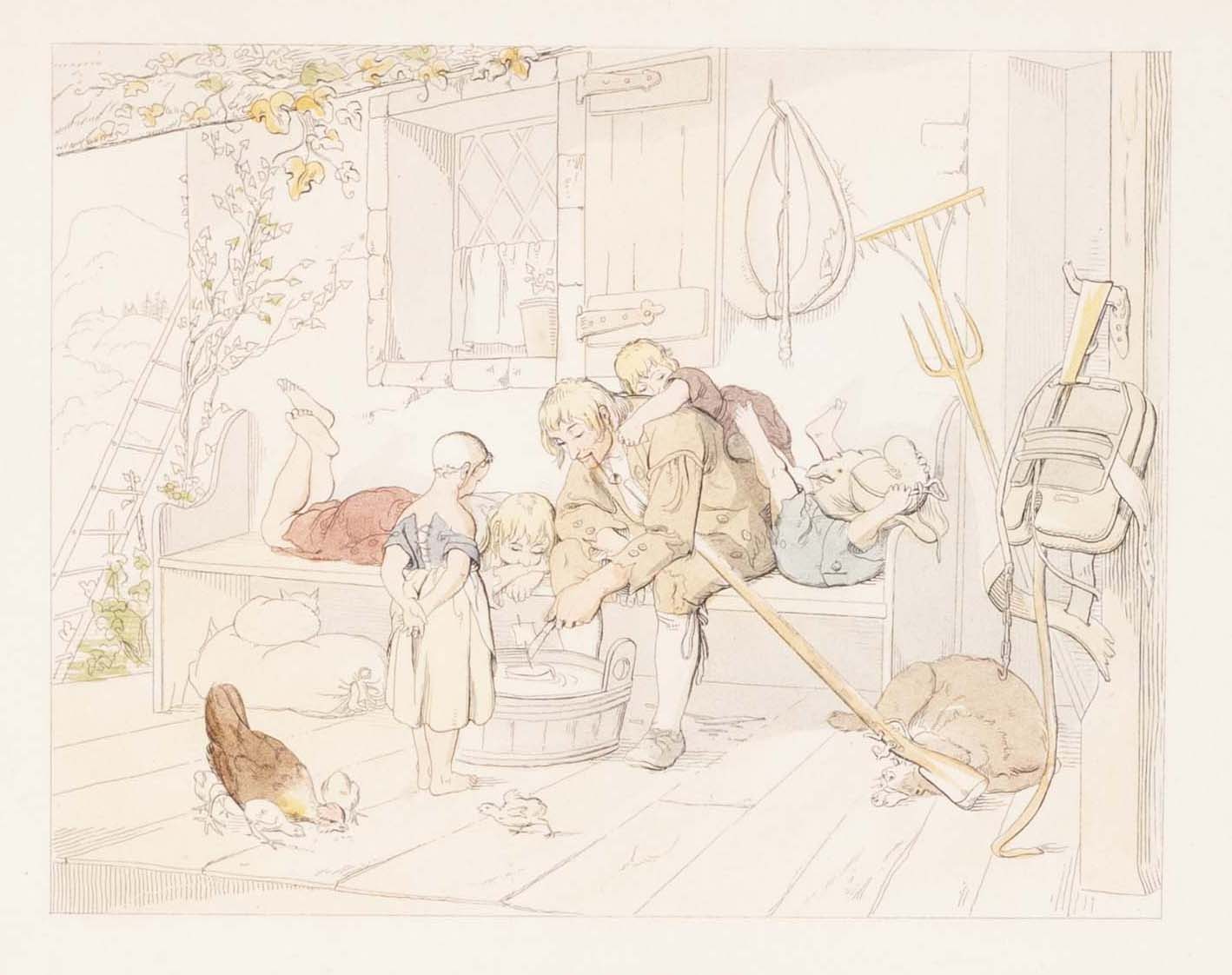
WITH NEW CONTENT – POPE, THOMSON, YOUNG …
TOMPSON, John, editor.
English Miscellanies consisting of various Pieces of Divinity, Morals, Politicks, Philosophy and History; as likewise of some choice Poems; all collected out of the most approved Authors in the English Tongue [etc.] … Vol. I[–II].
Gottingen by Abram. Vandenhoeck, Printer and Bookseller to the University 1746.
Two vols., 8vo., pp. [4], 531, [3]; [2], 516, [2], with a terminal errata leaf in each volume; title-pages printed in red and black; a good copy, albeit printed on cheap paper, in contemporary German half calf and speckled paper boards; very worn; ownership inscriptions of F. L. A. Isenbart, and with some marginal translations into German (and pronunciation guides) up to p. 43 and again pp. 431-455 in volume I.

Added to your basket:
English Miscellanies consisting of various Pieces of Divinity, Morals, Politicks, Philosophy and History; as likewise of some choice Poems; all collected out of the most approved Authors in the English Tongue [etc.] … Vol. I[–II].
Second edition, revised, of John Tompson’s important English Miscellanies, expanded to almost twice the size of the first edition, including up-to-date content published since 1737.
New to this edition are Pope’s The Universal Prayer and ten letters (as well as several written to him); two new poems by Prior (an ‘Ode presented to the King’, 1695, and ‘Henry and Emma’), and two by Addison (‘An Account of the Greatest English Poets’ and A Letter from Italy to Lord Halifax), as well as his essay ‘Of Christian Religion’; letters and poems by Elizabeth Rowe, and an elegy by her son after her death in 1737; two long extracts from Glover’s political epic Leonidas (1737); and two full plays – The Non-Juror by Colley Cibber, and James Thomson’s Agamemnon (1738); as well as two numbers each from the Free-Thinker and The Guardian. The volume also contains, significantly, what is almost certainly the first appearance in Germany of any part of Edward Young’s The Complaint, or Night Thoughts (1742-6) – here the long meditation on death that closes the third ‘night’. Young’s fame was to grow nowhere greater than in Germany, where he was read by Klopstock, Lessing, Wieland, and Goethe, and his name became a battle-cry for the Sturm und Drang movement. The first German translations from the poem appeared in periodical form in 1749-50.
ESTC lists eight copies, but only BL in the UK and none in the US.

